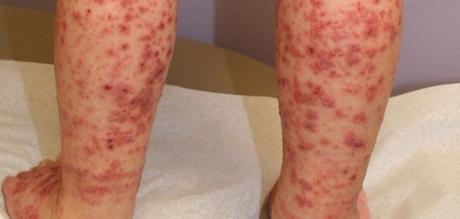
Which body fluid is the lifeline of the human body? The answer is blood. Blood is the fluid that does various essential functions in the body, from conveying oxygen to other parts of the body to release carbon dioxide from the body, from delivering nutrients, to the hormones transportation. To maintain required blood in the body, platelets play an essential role. Platelets, one kind of small blood cells helps to clot the blood to stop bleeding during injury.
But what if the platelets count become low or high? One of such condition is known as idiopathic thrombocytopenic purpura (ITP).
What is Idiopathic Thrombocytopenic Purpura (ITP)?
ITP is a hematologic issue, marked by the low count of platelets due to which blood is unable to clot when required. The ITP supposed to be a type of autoimmune disorders which is also famous with the name of immune thrombocytopenia. The disease is characterized by a noticeable symptom called purple bruises (purpura) which appeared on skin. Due to these bruises, disease famous with the name of thrombocytopenic purpura.
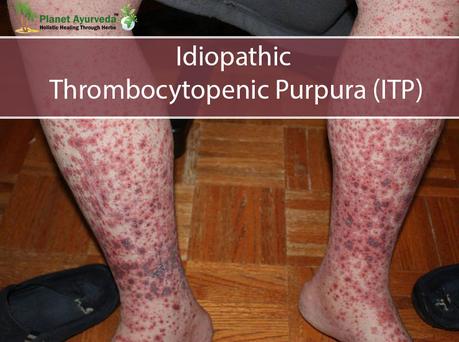
Types of ITP
The ITP can be of various types
- Newly Diagnosed ITP - Diagnosed less than starting three months.
- Persistent ITP - When the patient disease duration is from 3 to 12 months
- Chronic ITP -The disease duration is beyond 12 months
- Severe ITP -Include the occurrence of bleeding symptoms
- Refractory ITP - The disease case which does not respond to splenectomy and shows bleeding symptoms during ongoing therapy
But What is the Reason behind the Disrupted Immune System ?
When the glycoprotein loss the ability to express themselves on platelets and megakaryocytes.
What are the Clinical Features of ITP?
- Mucocutaneous bleeding of skin, GI tract and oral cavity, which form purpura
- Bleeding Nose
- Blood in urine
- Fatigue
Major Complications
- Intracranial haemorrhage
- Thrombosis
The Next Question Arises is, How one can Diagnose the Disease?
Physical Examination
The doctor will check all the possible symptoms of ITP.
Laboratory Tests
CBC (complete blood count)
It determines cell number, usually white, red and platelets.
Blood Smear
The test is done to check platelets number in the blood.
Bone Marrow Test
The test is done to identify causes behind low platelet count.
Once the diagnosis of ITP is confirmed, the next step is to treat and manage the condition.
The ITP Management Involve the Number of Modalities
- Medications to Suppress Immune Systems -Oral Corticosteroids or Rituximab
- Medication to Enhance Platelets -Thrombopoietin receptor agonists
- Injections of IVIG to strengthen blood count
- Another Treatment Involves - Removal of spleen or medicate with other drugs like Azathioprine
- However, the treatment with the above medications may lead to some side effects as well such as
- Oral corticosteroids - relapse after discontinuation of the drug
- IVIG Injections - headache, vomiting, dizziness and enhance blood clot chances
- Rituximab - a sore throat, fever and low blood pressure
- Splenectomy - absence of spleen increase the prevalence of infections
- Azathioprine - fever, vomiting and muscle pain
Now, Here the Question Arises; How one can Manage the ITP Without being suffered from Side Effects?
The answer is Ayurveda.
Ayurveda is an ancient medicinal treatment system of India. It is a 5000 years old system originated and led by the rishi and maha gurus of ancient India.
The word Ayurveda is taken from Sanskrit which means
- Ayus - life
- Veda - science, wisdom and knowledge
- The word reflects - the science of life
What is the Central Concept behind Ayurveda?
An individualized approach from person to person as every individual has its own body type and energies.
Ayurveda treats by channelizing those energies which are known as dosha along with the mental, spiritual and physical state. Because as per Ayurveda, the Prakriti (combination of all doshas) of a person grow during the birth and remains same throughout the life.
Types of Dosha
Dosha mainly is of three types. All the doshas are made up of five essential elements - Air, Water, Earth, Fire, Space. Every cell and tissue of the body is known to make up of these five elements.
1. VataVata is known to make up for air and space. It channelizes heartbeat, nerve impulses, breathing, senses, communication and moods of the person.
2. KaphaKapha is known to make up of water and earth. It channelizes growth, nourishment, regeneration, stamina, memory and fat regulation.
3. PittaPitta is made up of water and fire. It involves digestion, metabolism and intelligence.
By treating the aggravated doshas, one can get relief from the ITP
Now the Next Question Arises Where the Patient gets the Ayurvedic Treatment for ITP?
The answer is - Planet Ayurveda
It is one of the world's best organization which provides natural and herbal medicines for curing certain kind of diseases. The organization also offer herbal combination to manage ITP. These herbal medicines are of the best quality which is strictly prepared according to Ayurveda rules.
Planet Ayurveda provides different herbal combinations which acts according as per age
There are three types of the combo are present
- ITP Care Pack For Adults
- ITP Care Pack For Children (3 to 14 years)
- IPT Care Pack For Kids Less than three years of age
The Adult Care Pack For ITP Involves -
- Kumar Kalyan Ras - 1 twice daily
- Giloy Capsules - 1 twice daily
- G-Plat Capsules - 1 twice daily
- Pitta Balance - 1 twice daily
- Swarn Basant Malti Ras - 1 twice daily
- Green Essentials - 1twice daily
- Brahmi Chawyanprash - 1tsp twice daily
- Ashwagandha Capsules - 2 twice daily
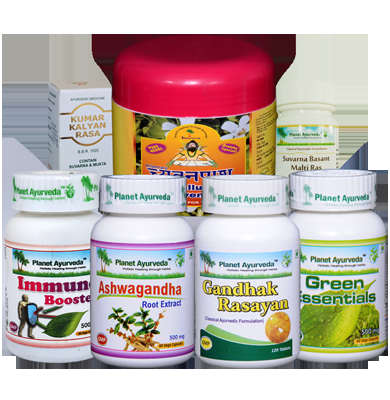

The Care Pack For 3 - 14 Years Old Children -
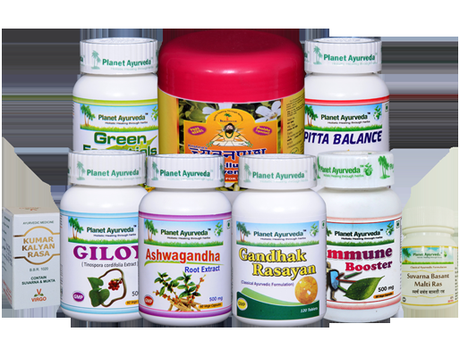

- Kumar Kalyan Ras - 1 once daily
- Giloy Capsules - 1 twice daily
- G-Plat Capsules - 1 twice daily
- Pitta Balance - 1 once daily
- Swarn Basant Malti Ras - 1 twice daily
- Green Essentials - 1twice daily
- Brahmi Chawyanprash - 1tsp twice daily
- Ashwagandha Capsules - 2 twice daily
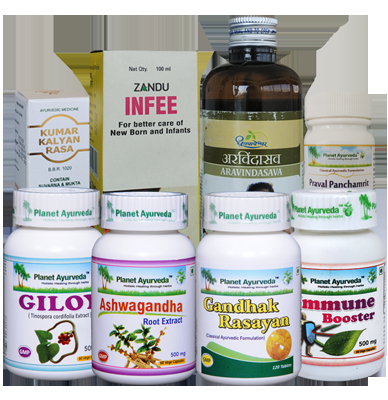

The Care Pack For Less than 3 Years Old Children -
- Kumar Kalyan Ras - 1 once daily
- Giloy Capsules - 1 twice daily
- G-Plat Capsules - 1 twice daily
- Swarn Basant Malti Ras - 1 once daily
- Ashwagandha Capsules - 1 twice daily
- Infee Syrup - 1tsp twice daily
- Immubuild Syrup - 1 tsp twice daily
- Arvindasava Syrup - 1tsp twice daily
- Immune XP Syrup - 1 tsp twice daily
By taking Ayurvedic medication along with some precaution, prescribed by an Ayurvedic consultant, the patients will able to manage the ITP condition without any side effects.
- Avoid taking pills like ibuprofen and aspirin
- Enhance the intake of whole grains, leafy vegetables and fresh fruits
- Avoid dairy products, sugar and blood thinning food items like ginger, tomato and garlic

